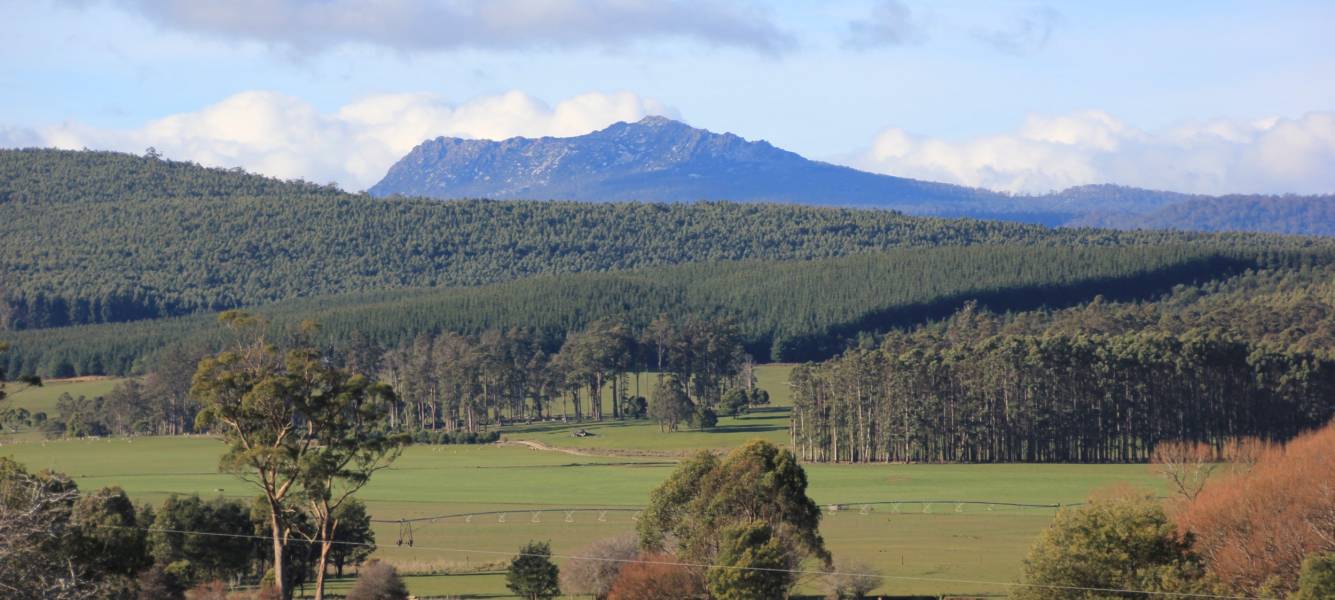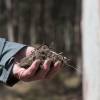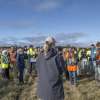
New fee schedule for private timber reserves
Posted 24 June 2024
As of 1 July 2024, the private timber reserve application fee will increase from $623.00 to $654.50.
The fee for a private timber reserve (PTR) application is payable to Private Forests Tasmania and represents the cost of processing an application to declare land as a private timber reserve.
Private timber reserves create a secure environment for investment in private forestry within Tasmania and help to deliver commitments for the sustainable management of private forests. A PTR is an area of private land set aside for forestry purposes and registered on the title. It is land or forest used to establish forests or grow or harvest timber in accordance with the Forest Practices Code.
PTRs may cover a single title or several titles and be over the whole of a title, or part of a title. It must be at least five hectares in size.
A PTR provides long-term security to manage land for forestry purposes and local government approval is not required when undertaking forestry operations on land declared a private timber reserve. Learn more about private timber reserves HERE.
The fee to accompany an application to declare land as a private timber reserve is set under Forest Practices Regulation 2007. The private timber reserve application fee is 350 fee units.
The value of a fee unit is set annually via the Fee Units Act 1997. The value of a fee unit in for 2024 – 2025 is $1.87.
The increase from $623.00 to $654.50 is an automatic increase, required under the Fee Units Act 1997.
This fee is exclusive of GST.
Other fees payable under the Forest Practices Regulation 2007, Application Fee to Certify Forest Practices Plan and Tree Fern Tag, will also increase.
Private Forests Tasmania - Fees set in accordance with the Fee Units Act 1997

Share this Article
Latest Articles
-

20 October 2025
Tasmanian High Soil Carbon Landscapes project
-

17 September 2025
Celebrating excellence at the Tasmanian Timber Awards
-

17 September 2025
Forest Practices Authority Research Update Day
Archives
- ActivAcre hits milestone, calls for more farmers to get on board
- Napier's leading the way in sustainable forestry and carbon-neutral farming
- Sound science needed to assess carbon impacts of timber harvesting
- Newly appointed TFFPN Board of Directors
- Graduate Certificate of Forestry Scholarship
- Forestry Australia Mentoring Program 2025
- Forest Industry Roundtable planning for the long term
- Eagle Management Constraint Period extended
- Successful private native forest management celebrated
- $15 million investment in new ship loader to boost Bell Bay's forestry exports
- Standing with Tasmania's forestry industry: buy local
- TFPA: Tasmanian Freight Equalisation Scheme needs a ground-up review
- AFCA Gala Dinner celebrates industry excellence
- Fire permits now required Statewide
- Forest leaders hone skills in sustainable native regrowth management
- Tasmanian forests and the carbon market: Barriers and opportunities
- What the 2024-25 Tasmanian Budget means for forestry
- Spring is the time for fuel reduction burning
- Primed for Growth: A situation analysis of the Tasmanian Forest and Wood Products Sector
- Audit requirements cut for low-risk plantation projects
- Guidance and support for landowners after damaging winds
- Forestry Australia welcomes further definition of active forest management
- Farm & Forest Mapper Tool highlighted at Rural Youth Tasmania's Young Farmer of the Year competition
- Senate Select Committee inquiry into the Tasmanian Freight Equalisation Scheme
- Timberlink announces new wood composite products brand
- Newly developed protocol a vital tool for safeguarding forestry industry
- Red Hot Tips: Fire management for Tassie farmers
- Bioenergy: Fuelling industries with trees
- Harvesting trees: What you need to know
- Shelterbelts: How are they contributing to farm systems?
- Infill plantings and remnant vegetation: Why biodiversity depends on a thriving understory
- Plantation planning: The key to a successful plantation
- Exciting interactive forestry knowledge hub launched
- $450,000 farm forestry grant recipients revealed


